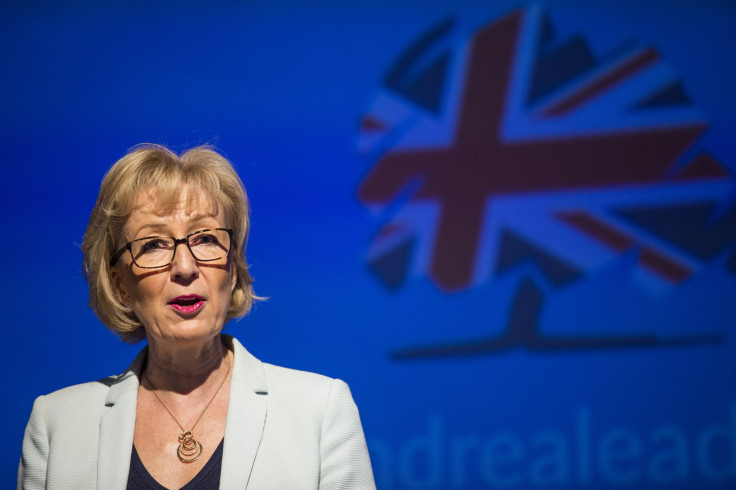UK Government Approves Controversial Sale Of Defense Company To US Private Equity Firm

KEY POINTS
The U.K. government had postponed the deal to study national security implications
The buyer vowed to protect U.K. jobs and maintain its British headquarters
The company was founded in 1934 by Sir Alan Cobham
The newly elected Conservative government of Boris Johnson has approved the $5.2 billion takeover of British defense giant Cobham PLC by U.S. private equity firm Advent International.
A merger had been agreed to in July, but the transaction was postponed by Secretary of State for Business, Energy and Industrial Strategy Andrea Leadsom so that the London government could examine national security issues raised by the deal. The deal got the final OK late Friday.
Leadsom said she is now confident the merger will not harm the U.K.’s national security.
"Having considered the consultation responses and further advice from the defense secretary [Ben Wallace], I am satisfied that the undertakings mitigate the national security risks identified to an acceptable level and have therefore accepted them and cleared the merger to proceed,” she said. "While trade and investment play an important part in the U.K. economy, when intervening in mergers on national security grounds, I will not hesitate to use my powers to protect national security, if it is appropriate to do so.”
Leadsom added that the decision to sell Cobham had been “meticulously thought over.”
In response to questions by the British government, Advent offered some concessions, including the protection of sensitive government information and a promise to give prior notice to the Ministry of Defense and Home Office if it later decides to sell off any Cobham businesses.
Moreover, Leadsom noted, the parties entered into a legally binding commitment that will protect British jobs and keep Cobham based in the U.K., with its name unchanged.
Cobham has many contracts with the British military and specializes in air-to-air refueling technology. Based in Wimborne, Dorset, Cobham also manufactures electronic warfare systems and communications for military vehicles. In addition, Cobham supplies radar components to defense and aviation firms, including Airbus.
Cobham employs about 10,000 people, including 1,700 in the U.K.
“It's very important that we should have an open and dynamic market economy,” Johnson said of the takeover. “A lot of checks have been gone through to make sure that, in that particular case, all the security issues that might be raised can be satisfied and the U.K. will continue to be a very, very creative and dynamic contributor to that section of industry and all others.”
David Lockwood, the chief executive of Cobham, said: “We are grateful to [Leadsom] for her diligent handling of the process over the last few weeks and the certainty she has delivered for all stakeholders, most importantly our employees, before the Christmas break.”
The parties also said they will spend at least 4.4% of sales generated at two of Cobham’s British subsidiaries on research and development.
"Advent takes its custodianship of Cobham seriously, and we are confident the transaction and undertakings being given on national security, jobs and future investment, provide important long-term assurances for both Cobham's employees and customers, particularly in the U.K. and also globally," said Shonnel Malani, a partner at Advent.
But the takeover has been blasted by Lady Nadine Cobham, the daughter-in-law of aviation pioneer Sir Alan Cobham who founded the company in 1934.
"We stand to lose yet another great British defense manufacturer to foreign ownership through a takeover that would never have been approved by the Americans, French or Japanese, all of whom have taken steps recently to raise protections for their own defense sectors,” she said. "In one of its first major economic decisions, the [Boris Johnson] government is not taking back control so much as handing it away.”
She also questioned the timing of the government’s approval. “This is a deeply disappointing announcement and one cynically timed to avoid scrutiny on the weekend before Christmas,” she said.
Similarly, the Liberal Democrat party’s acting leader Ed Davey called the sale “deeply concerning.”
“While Andrea Leadsom claims these concerns have been mitigated we have yet to see evidence of this,” he added. “If Boris Johnson’s government are happy to sell off a leading U.K. defense and aerospace company to Trump’s America, how can we expect his government to protect our defense and manufacturing sectors, not to mention every other sector of our economy, as they negotiate trade deals after Brexit?”
© Copyright IBTimes 2024. All rights reserved.





















